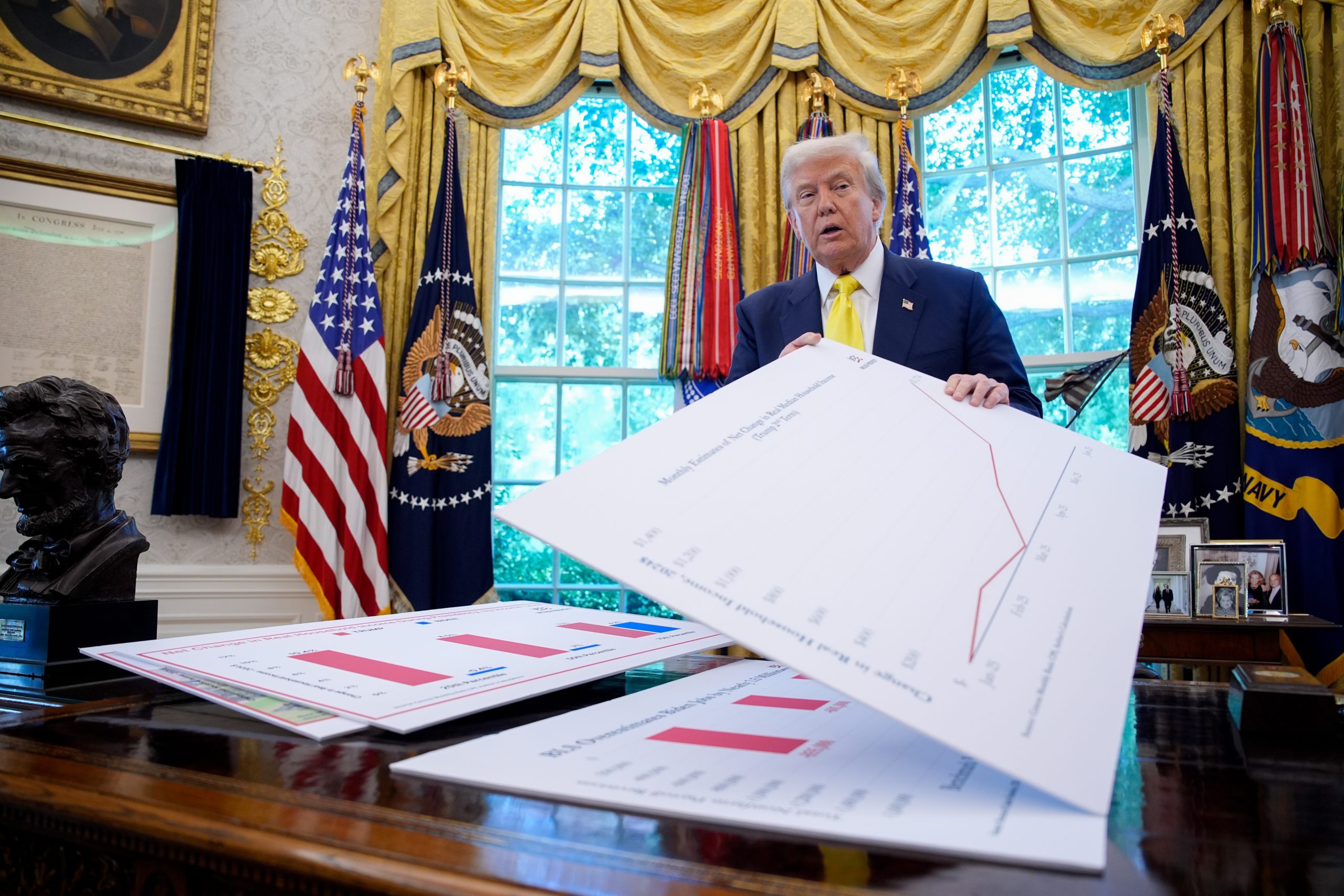**Trump’s Embrace of Industrial Policy: A Break from Free-Market Principles?**
For decades, the Republican Party platform has been synonymous with staunch free-market capitalism, a philosophy deeply rooted in the laissez-faire principles of Adam Smith. The “invisible hand” of the market, regulating itself without government intervention, was considered sacrosanct. However, the second Trump administration has dramatically deviated from this long-held belief, ushering in an era of unprecedented government intervention in the American economy. This shift raises crucial questions about the future of Republican economic policy and the very definition of conservative ideology.
**Unprecedented Government Intervention in Key Sectors**
The Trump administration’s economic actions represent a significant departure from traditional Republican principles. Instead of relying on market forces, the administration has actively intervened in various sectors. A prime example is the termination of a revenue-sharing agreement with Nvidia, a major technology company. This move, along with the government’s partial acquisition of US Steel and its consideration of a stake in Intel, signals a clear embrace of industrial policy—a concept typically associated with more interventionist, left-leaning governments. Further fueling this perception is the administration’s creation of a loyalty ranking system for US companies, ostensibly designed to incentivize domestic production and investment. This system, coupled with the President’s public pressure on companies to avoid price increases in response to tariffs, constitutes a level of market control rarely seen in recent American history.
**The Tariffs and Their Impact: A Tool for Economic Nationalism?**
The Trump administration’s extensive use of tariffs adds another layer to this complex economic picture. While tariffs are not inherently socialist, their application by the Trump administration has been framed within a broader narrative of economic nationalism. The aim, ostensibly, is to protect American industries and jobs from foreign competition. However, the consequences of these tariffs are far-reaching and have sparked significant debate amongst economists. Critics argue that tariffs can lead to increased prices for consumers, reduced international trade, and retaliatory measures from other countries. Proponents, on the other hand, highlight the potential for protecting domestic industries and fostering economic self-reliance. The long-term economic effects of this protectionist approach remain to be fully understood and assessed.
**Conclusion: Redefining Republicanism?**
The economic policies of the second Trump administration represent a significant departure from traditional Republican principles. The level of government intervention, the embrace of industrial policy, and the utilization of tariffs as tools of economic nationalism challenge the long-held association of the Republican Party with laissez-faire capitalism. This shift raises fundamental questions about the future direction of the Republican Party and the very definition of conservative economic policy in the 21st century. The ongoing debate surrounding these policies underscores the need for rigorous analysis and a comprehensive understanding of their potential long-term consequences for the American economy and the global trading system. The extent to which this represents a permanent shift or a temporary aberration within Republican ideology remains a subject of ongoing political and economic discussion.
Based on materials: Vox





